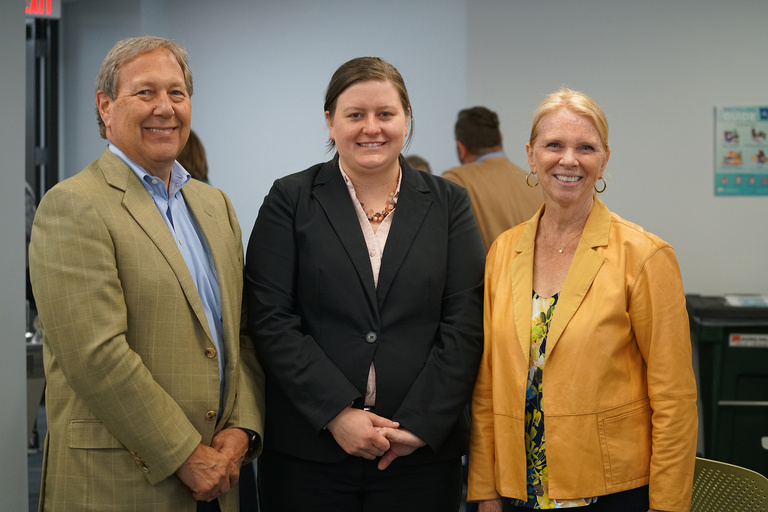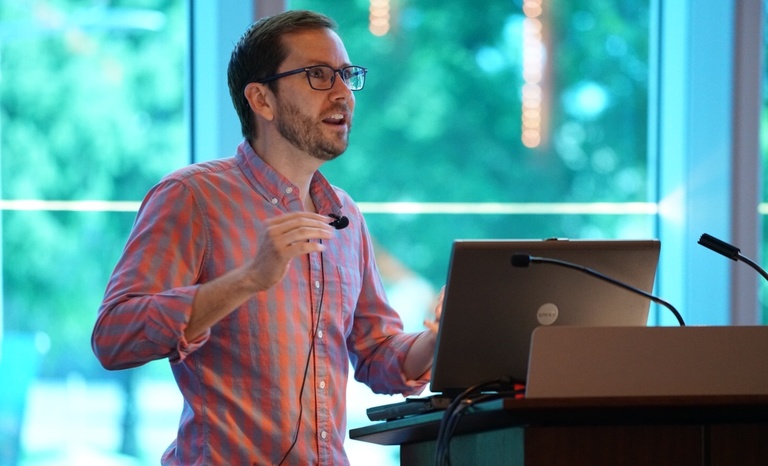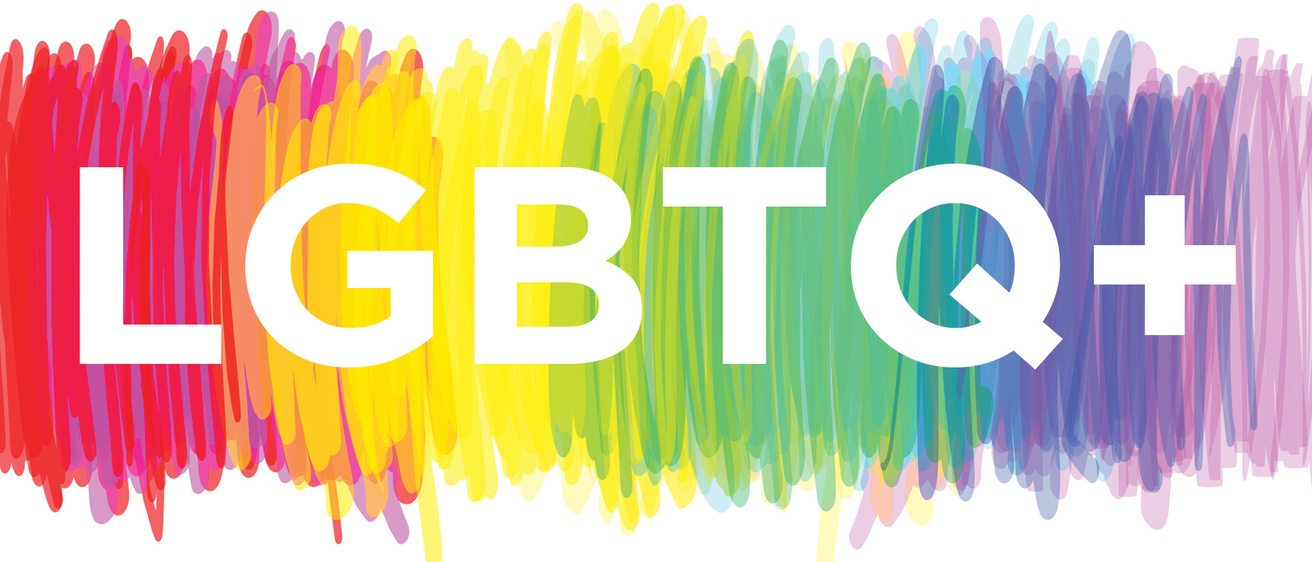Helping all students experience safe and supportive learning environments
Helping all students experience safe and supportive learning environments
Cindy Ann Kilgo (Ph.D. ’16) made a difference during their time as a doctoral student both in the College of Education and across the university. While completing their degree at the College of Education, Kilgo advocated for LGBTQ+ people through working to update university records to include students’ names and pronouns of reference and to decouple sex and gender.
Kilgo, who identifies as queer/lesbian and genderqueer and uses the pronouns they, them, and theirs, returned to the College of Education this past year as a speaker at the LGBTQ Micro-Conference.
The fourth annual conference, held in March of 2018, provided professional development for school teachers and administrators, healthcare providers, and community agencies working in the area of public policy, centered on three LGBTQ issues: healthcare, education, and policy with an emphasis on group discussion and sharing.
Will Coghill-Behrends, clinical instructor and director of the Baker Teacher Leader Center, says that focusing on these three areas provided for a more holistic view of LGBTQ issues.
“This conference is important because it allows for the opportunity to bring visibility to create shared visions and agreements around the work that we all need to do together to support one another and to learn from one another,” says Coghill-Behrends. “Especially for LGBTQ people in attendance, the overwhelming show of support really empowers everyone, and I think that’s what education is all about.” More than 100 people from across the state and nation who work in public policy, healthcare, and education attended the conference.
UI President, Bruce Harreld and his wife, Mary Harreld, attended the conference to discuss transgender issues and encourage understanding

and support with Mary giving welcome remarks.
“We celebrate our differences because, at the very least, they make us more creative and productive. At the most, they make the world a richer, more dynamic place,” says Mary Harreld. “Developing smart strategies to address inappropriate and unfair practices grounded the conference conversations in this important reality. The attending members of the LGBTQ community and their allies left the conference feeling more knowledgeable and energized to deal with today’s issues.”
Kilgo is currently an assistant professor in higher education administration at the University of Alabama. Their classes focus on college student identity and development, assessment of student learning, and the area of student affairs. Kilgo's students are challenged to consider the role of their own identities and their future students’ identities in cur- rent and subsequent work.
“The focus is to prepare students to be able to support any student who enters into their office in crisis, regardless of the identities that student holds,” says Kilgo. “Teaching can serve as a multiplication of advocacy. Each student in my class will go to their respective current or future job having had discussions and dialogue about the importance of advocating for LBGTQ+ students.”
Kilgo says that conferences like the LGBTQ Micro-Conference not only brings people together from the community and allows for discussion of important topics, but also creates the potential for sustained action.
“It is extremely important to educate teachers and institutional leaders about LGBTQ+ students. If more people are educated about LGBTQ+ identities, a more aware community can emerge. Simply knowing that a faculty member or institutional leader understands your identity or experience can make a difference in how a student feels they belong at an institution,” says Kilgo.
Creating safer, stronger communities
The college offers conferences, workshops, and also created an LGBTQ Counseling Clinic in the Family and Couple Therapy Program in 2012. The clinic is run by assistant professor Jacob Priest and serves hundreds of patients from across the Midwest.

“Part of why our clinic focuses on community outreach, whether that be through professional development, presenting at national conferences, or working with advocates in the state, is to translate this knowledge so we can have safer and inclusive spaces,” Priest says. “When we do that, we help make communities safer and stronger, and we help improve the mental and physical health of Iowans, not only LGBTQ Iowans, but all Iowans.”
The clinic is also one of the only designated locations in eastern Iowa that is a referral source for letters of support, a requirement that transgender patients must obtain before undergoing hormone replacement therapy or gender-affirming surgery. The clinic has a formal partnership with the UI Health Care LGBTQ Clinic, and has provided more than 150 letters of support for transgender clients.
“One of the best things we can do for mental health is letting people live their authentic lives. Research has shown that if we create inclusive spaces for LGBTQ individuals and give them the medical intervention they need, they can live happy and fulfilled lives,” Priest says. “If we have those safe, inclusive spaces, everyone benefits.”
Priest also places an emphasis on educating future counselors to work with LGBTQ patients.
“We’re training future supervisors and instructors so they can not only take and use what they have learned here with their current clients, but they can teach other students. And then those students become supervisors and instructors. They have the knowledge, so hopefully it can just permeate out,” says Priest.
Priest has trained about 200 mental health professionals across several eastern Iowa communities in the 2017-18 academic year. Part of this training is focused on intersectionality, which means understanding the way multiple identities intersect. Many mental health care providers will exclusively discuss a patient's sexual orientation or gender identity, or completely disregard it, instead of looking at the whole person, says Priest.
“It’s about seeing LGBTQ individuals as people. They have hopes and dreams and fears and problems just like everybody else,” says Priest. “Their sexual orientation or gender identity is a part of who they are, but it isn’t the whole person. Getting to know and understand the whole person is really important.”
Read more from the 2017-18 College of Education Annual Report.
